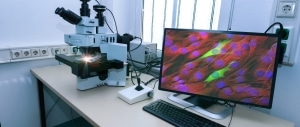When applying to do a PhD, the formal application is usually as you would expect: you fill in a form, attach your CV and a covering letter and wait to hear from the university. Before you get to this stage, however, there are several important things you should do to not only ensure that your application is successful but also that your 3-5 years of research are fun and rewarding. Here are some tips to help you prepare a strong PhD application:
1. Give Yourself Time
Applying for a PhD programme is a big commitment and the decisions you make here in terms of your field of research, supervisor, university and work environment could impact how you get on in this time of your life. As with all big decisions, it’s important that you give yourself enough time to think about why you want to do a PhD and get a clear idea of what to expect. There’s no one answer about what ‘enough time’ means, but a general rule of thumb would be to give yourself a year to think seriously and finding out as much as you can about doing a PhD.
This will typically mean actively taking steps in the last year of your undergraduate degree or as you start your masters. A great start is to chat with current PhD students to get an idea of their experiences and their advice on working with different supervisors. Make sure you chat with your university’s career advice centre and also attend open days at the universities you’re thinking of applying to.
2. Find out As Much as You Can
Whilst a year may sound like a long time to do your research, it’ll go by quickly as you’re busy with final year exams, coursework and dissertations. Use the time to get an understanding of the different areas of PhD research possible and how these align with your interests. In reality, there are a lot of things that need to line up for you to find your ideal PhD – the right project, supervisor, university, accommodation, location, funding amount etc. so you may have to compromise on a few things as you carry out your research.
In thinking about what research topic you want to focus your PhD on, start reading published papers and attending conferences (discounted student rates are often available) to get an idea of what the latest new findings being published in your area of interest is. Think about possible areas of research and unanswered questions that could be suitable for a PhD project. This could be a useful time to meet potential supervisors too and get their thoughts on key areas of research.
Also, make sure you find out as much as you can about the realities of funding – how much should you expect and what exactly will it cover? Some funding grants cover the tuition fees only whilst others may also provide a stipend. What are the costs of living around the universities you’re considering (i.e. accommodation, food and transport)?. All these factors will to some extent impact your final decision to pursue a PhD.
Finding a PhD has never been this easy – search for a PhD by keyword, location or academic area of interest.
3. Be Clear on What You’re Committing To
Being awarded a PhD is an incredible achievement, however, it’s not an easy one. I strongly recommend reading as much as you can and talking to as many PhD students as you can to find out what daily life is like as a research student. You’ll soon find that the stipend levels awarded in funding are often low. Whilst you’ll likely be within a research lab with other students, you’ll likely to experience a period of isolation as you and your colleagues get immersed in your own projects.
The pace of research can sometimes be slow; experiments may not deliver the results expected and you may feel that you’re not progressing as fast as you thought you would. All these things will take some getting used to, especially if you are returning to university after a period of work in industry. Of course, the working environment will vary from one lab to another, but it’s important to be aware of some of the realities and expectations of PhD working life before entering a programme.
4. Get in Touch with Potential Supervisors
The relationship you have with your supervisor as a PhD student can have a real impact on how much you enjoy it and potentially if you end up completing a PhD at all. I think it’s important that one of the first things you do is to contact potential supervisors and get to know them. It’s a good idea to read up on their research background beforehand and familiarise yourself with their most important papers and also what they’ve been working on recently.
The only way to truly get to know someone is to meet them; it’ll work both ways too – you need to find out if you want to carry out your PhD in this lab and the supervisor needs to find out if he or she wants you in their lab!











